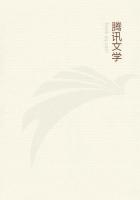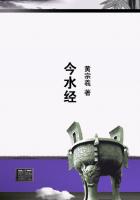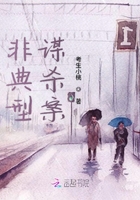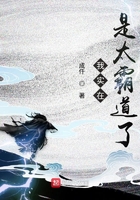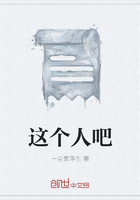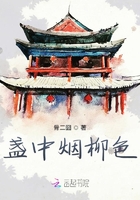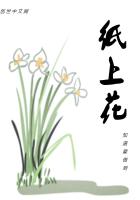We may fancy to ourselves, that in ages of progress, the human race, like scouts gone abroad on the discovery of fertile lands, having the world open before them, are presented at every step with the appearance of novelty. They enter on every new ground with expectation and joy: They engage in every enterprise with the ardour of men, who believe they are going to arrive at national felicity, and permanent glory; and forget past disappointments amidst the hopes of future success. From mere ignorance; rude minds are intoxicated with every passion; and partial to their own condition, and to their own pursuits, they think that every scene is inferior to that in which they are placed. Roused alike by success, and by misfortune, they are sanguine, ardent, and precipitant; and leave to the more knowing ages which succeed them, monuments of imperfect skill, and of rude execution in every art; but they leave likewise the marks of a vigorous and ardent spirit, which their successors are not always qualified to sustain, or to imitate.
This may be admitted, perhaps, as a fair description of prosperous societies, at least during certain periods of their progress. The spirit with which they advance may be unequal, in different ages, and may have its paroxysms, and intermissions, arising from the inconstancy of human passions, and from the casual appearance or removal of occasions that excite them. But does this spirit, which for a time continues to carry on the project of civil and commercial arts, find a natural pause in the termination of its own pursuits? May the business of civil society be accomplished, and may the occasion of farther exertion be removed? Do continued disappointments reduce sanguine hopes, and familiarity with objects blunt the edge of novelty? Does experience itself cool the ardour of the mind? May the society be again compared to the individual? And may it be suspected, although the vigour of a nation, like that of a natural body, does not waste by a physical decay, that yet it may sicken for want of exercise, and die in the close of its own exertions? May societies, in the completion of all their designs, like men in years, who disregard the amusements, and are insensible to the passions, of youth, become cold and indifferent to objects that used to animate in a ruder age? And may a polished community be compared to a man, who having executed his plan, built his house, and made his settlement; who having, in short, exhausted the charms of every subject, and wasted all his ardour, sinks into languor and listless indifference? If so, we have found at least another simile to our purpose. But it is probable, that here too, the resemblance is imperfect; and the inference that would follow, like that of most arguments drawn from analogy, tends rather to amuse the fancy, than to give any real information on the subject to which it refers.
The materials of human art are never entirely exhausted, and the applications of industry are never at an end. The national ardour is not, at any particular time, proportioned to the occasion there is for activity; nor curiosity to the extent of subject that remains to be studied.
The ignorant and the artless, to whom objects of science are new, and who are worst furnished with the conveniencies of life, instead of being more active, and more curious, are commonly more quiescent, and less inquisitive, than the knowing and the polished. When we compare the particulars which occupy mankind in their rude and in their polished condition, they will be found greatly multiplied and enlarged in the last. The questions we have put, however, deserve to be answered; and if, in the advanced ages of society, we do not find the objects of human pursuit removed, or greatly diminished, we may find them at least changed; and in estimating the national spirit, we may find a negligence in one part, but ill compensated by the growing attention which is paid to another.
It is true, in general, that in all our pursuits, there is a termination of trouble, and a point of repose to which we aspire.
We would remove this inconvenience, or gain that advantage, that our labours may cease. When I have conquered Italy and Sicily, says Pyrrhus, I shall then enjoy my repose. This termination is proposed in our national as well as in our personal exertions;and in spite of frequent experience to the contrary, is considered at a distance as the height of felicity. But nature has wisely, in most particulars, baffled our project; and placed no where within our reach this visionary blessing of absolute ease. The attainment of one end is but the beginning of a new pursuit; and the discovery of one art is but a prolongation of the thread by which we are conducted to further inquiries, and only hope to escape from the labyrinth.
Among the occupations that may be enumerated, as tending to exercise the invention, and to cultivate the talents of men, are the pursuits of accommodation and wealth, including all the different contrivances which serve to increase manufactures, and to perfect the mechanical arts. But it must be owned, that as the materials of commerce may continue to be accumulated without any determinate limit, so the arts which are applied to improve them, may admit of perpetual refinements. No measure of fortune, or degree of skill, is found to diminish the supposed necessities of human life; refinement and plenty foster new desires, while they furnish the means, or practise the methods, to gratify them.
In the result of commercial arts, inequalities of fortune are greatly increased, and the majority of every people are obliged by necessity, or at least strongly incited by ambition and avarice, to employ every talent they possess. After a history of some thousand years employed in manufacture and commerce, the inhabitants of China are still the most laborious and industrious of any people on the surface of the earth.

